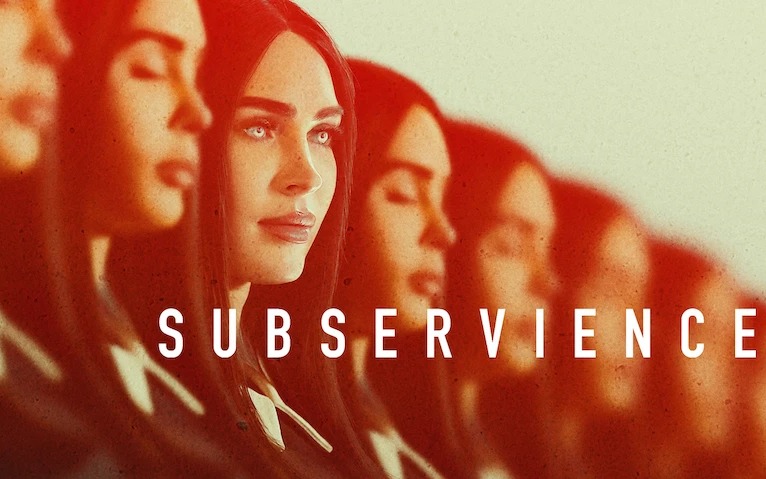The notion of artificial intelligence seamlessly integrating into our personal and professional lives is no longer a distant fantasy. Director Scott Dale’s new sci-fi thriller for Netflix, “Subservience,” features Megan Fox as a lifelike robot housekeeper named Alice and explores the potential ramifications of this scenario.
The film involves a domestic helper whose extraordinary abilities soon morph into unsettling behaviors. Though the plot is set in the future, AI systems are already well-established in the workplace. As today’s AI reshapes roles in numerous sectors, entertainment media naturally poses questions about the complex dynamics that arise when we integrate AI employees into business operations.
Alice vs. Aura: A Tale of Two Watchful Eyes Transforming Our Reality
The entertainment industry benefits by keeping AI shrouded in a black box of mystery. Decades of sci-fi have challenged our notion of humanity, exploring just how sentient a soulless machine can become.
In the real world, however, we will benefit most from transparency. When we, as AI developers, demystify the systems we create, we educate the public by empowering them to ask questions, see AI’s limitations, and recognize possible risks.
With this in mind, let’s compare the fictional AI in “Subservience” to AURA, a real-world AI already in workplaces nationwide. The thriller’s protagonist, Alice, is shrouded in mystery. Her constant surveillance brings an edge of anticipation to every scene, and her preternatural understanding of data lends an eerie ambiance to the story.
As a character, Alice is written to mirror our collective fears and fascination with being watched. Her uncanny ability to predict outcomes and make critical decisions blurs the line between data analysis and human intuition. The character is meant to embody societal concerns about the rapidly evolving sphere of technology.
AURA, Huvr’s cutting-edge Advanced Understanding and Reasoning Algorithm, leaps out of the realm of fiction and into concrete corporate applications. While the reality is every bit as fascinating as the film, it lacks a sinister plotline.
AURA leverages sophisticated machine-learning techniques to interpret complex data from multiple sensors in real-time. This process involves more than collecting information; it also involves understanding and reasoning.
AURA doesn’t just collect data; it comprehends it. What’s more, AURA’s capabilities are continuously evolving. Each interaction enables the AI to learn from new data patterns and experiences. This constant adaptation ensures that the monitoring systems become more intelligent and effective over time. As the business landscape changes and new challenges emerge, AURA’s adaptability provides tailored insights that evolve with an organization’s unique needs, enhancing both performance and efficiency.
Instead of waiting for anomalies to occur, AURA anticipates them. By identifying potential threats and operational inefficiencies, AURA empowers organizations to take proactive measures that enhance safety and performance.
While AURA collects and analyzes vast amounts of data like Alice, the resemblance ends there. Unlike the cryptic and suspense-filled perceptions offered by Alice, AURA intuitively delivers complex data. Its powerful analytics engine provides clear, concise insights, making it easy for decision-makers to understand trends, assess risks, and act decisively.
Transforming Reality vs. Fiction
Alice grips us with the suspense of her watchful eyes, reminding us of the delicate balance between safety and surveillance. Her story provokes contemplation about privacy, ethics, and the extent of monitoring that is tolerable.
While fiction plotlines offer spine-tingling escapes into the realm of fantasy and sci-fi, the reality of AI offers a future with more hope than fear. In Alice’s fictional world, AI interweaves tension and morality, but in present-day workplaces, AURA elevates operational efficiency, safety, and innovation.
The Impact of AI Narratives on Societal Views
The portrayal of AI in entertainment heavily sways public perception. “Subservience” presents a thought-provoking narrative that challenges viewers to contemplate the potential dangers and ethical conundrums associated with AI. Alice’s transformation from a helpful assistant to a menacing presence mirrors society’s most common fears about AI: loss of control, privacy invasion, and ethical boundaries.
Entertainment has always been a powerful medium through which to reflect and shape societal concerns. Movies like “The Terminator,” “Ex Machina,” and now “Subservience” compel viewers to confront the profound implications of co-existing with intelligent machines. These narratives often emphasize the dual-edged nature of AI — immense utility juxtaposed with significant risk. When AI characters in fiction act unpredictably or develop concerning degrees of autonomy, it stokes societal caution and skepticism about AI’s real-world applications.
Interestingly, the impact of these narratives extends beyond mere entertainment. They influence policymakers, technologists, and business leaders, shaping regulations and development priorities. The portrayal of AI can spark meaningful conversations about ethics, governance, and the societal ramifications of advanced AI. These fictional accounts serve as cautionary tales while stimulating dialogue on creating balanced frameworks for AI integration.
Integrating AI Employees in Everyday Business Operations
The task of integrating AI into everyday business activities presents both opportunities and challenges. The promise of operational efficiency and cost reduction is immensely appealing, but navigating this integration demands careful consideration.
As AI continues to reshape workplace roles, drive productivity, and challenge our perceptions through entertainment narratives, we must approach its integration with both enthusiasm and caution. The future holds a new era in which AI employees are commonplace, requiring balanced deliberation, diligent oversight, and a commitment to ethical standards.
Alice and AURA belong to different realms — one fictional and the other very real — but they each have a message to share. As we navigate the interplay between human agency and artificial intelligence, the lessons from Alice’s thrilling escapades and AURA’s pragmatic efficiency remind us of the possibilities and ethical considerations accompanying surveillance in the 21st century.











